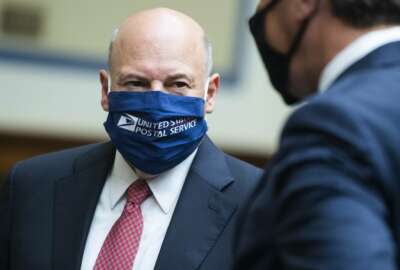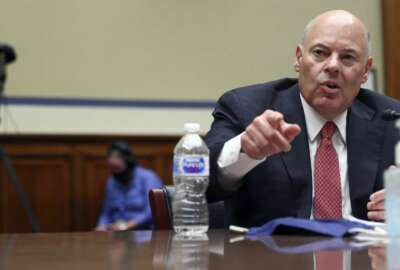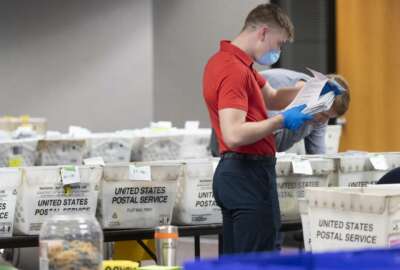

With the Postal Service under intense scrutiny from Congress over its capacity to deliver on time ahead of the November election, its inspector general found the...
With the Postal Service under intense scrutiny from Congress over its capacity to deliver on time ahead of the November election, its inspector general found the agency largely kept up with the volume of mailed-in ballots during the primary election season.
The IG report released Tuesday found the Postal Service delivered more than 94% of election and political mail on time between April and June – almost a 2% decline from what auditors found in their review of the 2018 election.
While the review includes recommendations for the Postal Service to implement ahead of November’s election, the IG also acknowledged that partnerships between USPS and about 8,880 state and local election boards remain essential to getting mail-in ballots counted on time.
“While the Postal Service has made progress in preparing for the 2020 general election, there are concerns surrounding integrating stakeholder processes with Postal Service processes to help ensure the timely delivery of Election and Political Mail,” auditors wrote in the report released Monday.
The IG, for example, has urged state election boards to put mail-tracking barcodes on ballot envelopes, a best practice that only made it on 13% of the more than 31 million mail-in ballots sent and delivered in 2018. However, auditors found that some election boards lack the funding to implement these changes, and have decided to use their excess inventory of ballot envelopes without barcodes.
The IG found that during this year’s primary election season, USPS delivered more than a million ballots within seven days for the election, which “put these ballots at high risk by not allowing sufficient time for delivery to voters and their subsequent delivery.”
To avoid this, the IG suggests election officials send ballots as first-class mail, which it delivers in two-to-five days, and sending them to voters at least 15 days prior to the election. However, 48 states and the District of Columbia allow voters to request absentee ballots sooner than that.
In an audit of seven processing and distribution centers during the primary election season, the IG found that only one completed a 15-day self-audit checklist meant to verify its readiness to receive and process election mail.
One facility under audit in Baltimore certified it had cleared all of its election and political mail daily, but the IG found that about 68,000 pieces of political mail sat uncounted for five days in May and weren’t delivered on time.
The report IG didn’t evaluate recent operational changes at the Postal Service, such as the removal of mail-sorting equipment or Postmaster General Louis DeJoy’s focus on avoiding late and extra trips between mail processing and distribution centers and post offices. At the request of Congress, however, the IG is conducting a review of these changes and their impact on late mail delivery.
USPS Chief Logistics and Processing Operations Officer Dave E. Williams said the agency largely agreed with the IG’s recommendations,
“As the audit suggests, the success and integrity of the election depends on close coordination within the organization and partnerships and cooperation between the Postal Service and state election officials, and also requires ensuring that voters have a general understanding of how the mail works.”
After meeting with state officials to discuss election mail late last month, DeJoy will hold a follow-up meeting with the National Association of Secretaries of State’s election committee on Sept. 17.
In a call with state secretaries of state last week, DeJoy told officials that the agency is “ready, willing, and able to handle the nation’s election mail” this November.
“We stand ready to assist states and look forward to partnering with them on educating voters who plan to vote by mail,” DeJoy said. “I will reiterate to the American public that if you choose to use the mail to vote, be sure to request ballots early and mail them back early.”
Copyright © 2025 Federal News Network. All rights reserved. This website is not intended for users located within the European Economic Area.
Jory Heckman is a reporter at Federal News Network covering U.S. Postal Service, IRS, big data and technology issues.
Follow @jheckmanWFED



